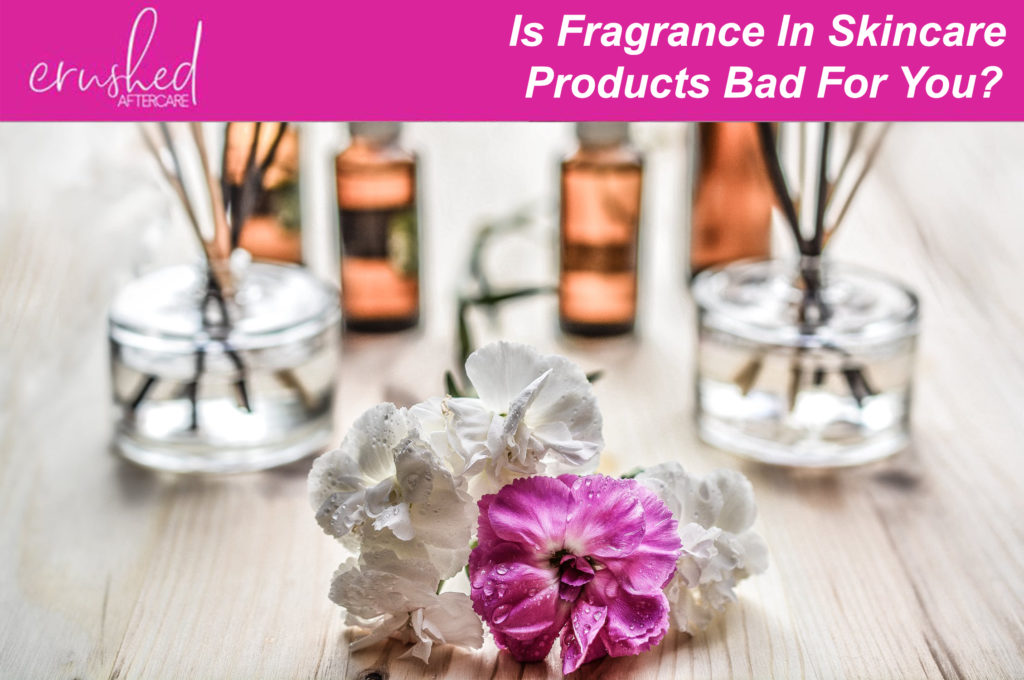
Is Fragrance In Skincare Products Bad For You?
Many skincare products include fragrances because they make them smell luxurious. However, they are the number one cause of contact dermatitis from cosmetics, making these additives especially bad for skin that is healing. Consumers are often being misled over fragrances, though, even while they do damage to the skin!
Irritation Can Depend On The Source Of The Fragrance
 Not all smells are bad, just synthetic ones. It’s hard to figure out what the fragrances on many products are because cosmetic companies are allowed to only list “fragrance” on a list of ingredients. They have successfully convinced the Canadian and American governments (among many others) that it’s necessary to protect the secret behind their smells. Even if it contains synthetic ingredients, preservatives, or substances that provoke allergic reactions, the companies do not have to be more specific.
Not all smells are bad, just synthetic ones. It’s hard to figure out what the fragrances on many products are because cosmetic companies are allowed to only list “fragrance” on a list of ingredients. They have successfully convinced the Canadian and American governments (among many others) that it’s necessary to protect the secret behind their smells. Even if it contains synthetic ingredients, preservatives, or substances that provoke allergic reactions, the companies do not have to be more specific.
Many of the fragrances do indeed use synthetic compounds, and companies can disclose their fragrant ingredients if they want to without specifying the amounts or the formulation process. These are the types of products people should look for in their daily routine. Any list of ingredients that includes “fragrance” should follow it with the ingredients used to make it. This way, the buyer can tell if any of the components would aggravate their skin.
However, disclosure doesn’t mean the product will be good for your skin. Fragrances are never an essential part of the product, even if they are made with well-sourced ingredients. The best products, especially those used on skin that is open and healing, use either no fragrances or natural essential oils.
Why Choose Essential Oils
 Essential oils are liquids that have been extracted from the stems, leaves, flowers, and other parts of various plants and distilled to extract the natural aromatic molecules. Not only do they smell nice, but some essential oils can even promote healing when used in the proper amounts.
Essential oils are liquids that have been extracted from the stems, leaves, flowers, and other parts of various plants and distilled to extract the natural aromatic molecules. Not only do they smell nice, but some essential oils can even promote healing when used in the proper amounts.
Calendula oil, for example, is extracted from the marigold plant. It soothes and moisturizes the skin while reducing pain after tattoos or semi-permanent makeup treatments. Calendula doesn’t smell very luxurious, though, so other safe essential oils like lavender are used in Crushed Aftercare products.
Consumers shouldn’t just look for an essential oil on the ingredients list and be satisfied, as it might be one of several fragrant ingredients used. If the ingredients list says fragrance, fragrance oil, fragrant oil, perfume or parfum, then it’s synthetically scented and not all-natural. These should never be applied to areas that are still healing from a tattoo or semi-permanent makeup treatment like microblading. They can aggravate the skin and prevent necessary healing, even for people not usually allergic to fragrances.
Instead, clients should be sent home with a healing balm, made solely with natural ingredients, that can replace the healing balm product they typically use. The proper ingredients can moisturize the treated area while both protecting it and speeding up the healing process.







